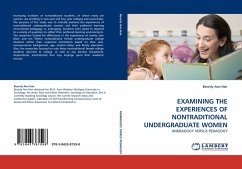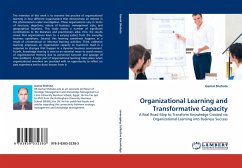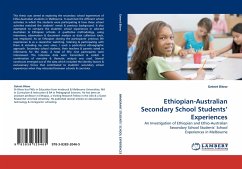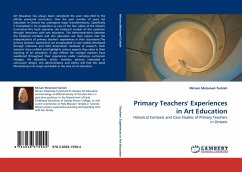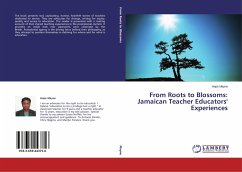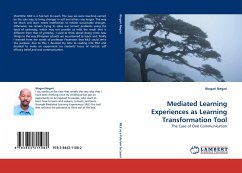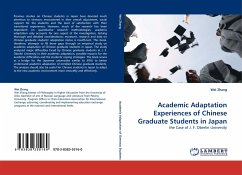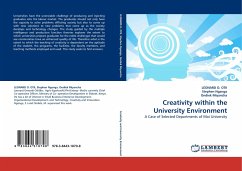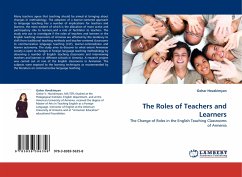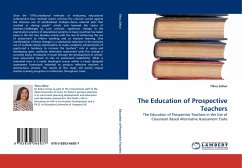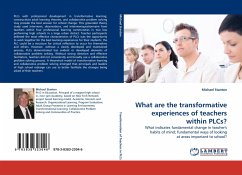
What are the transformative experiences of teachers within PLCs?
What indicates fundamental change in teacher''s habits of mind; fundamental ways of looking at areas important to school?
Versandkostenfrei!
Versandfertig in 6-10 Tagen
32,99 €
inkl. MwSt.

PAYBACK Punkte
16 °P sammeln!
PLCs with professional development in transformative learning, constructivist adult learning theories, and collaborative problem solving may provide the best answer for school change. This grounded theory study used interviews, observations, and interview/questionnaire from teachers within four professional learning communities in two low performing high schools in a large urban district. Teacher participants believed the most effective characteristics of PLCs was the opportunity to work together for the best learning experiences for their students; the PLC could be a structure for critical re...
PLCs with professional development in transformative learning, constructivist adult learning theories, and collaborative problem solving may provide the best answer for school change. This grounded theory study used interviews, observations, and interview/questionnaire from teachers within four professional learning communities in two low performing high schools in a large urban district. Teacher participants believed the most effective characteristics of PLCs was the opportunity to work together for the best learning experiences for their students; the PLC could be a structure for critical reflection to occur for themselves and others. However, without a clearly developed and maintained process, PLCs demonstrated less evident or developed elements of collaborative problem solving. Without strong direction and effective facilitators, teachers did not consistently and broadly use a collaborative problem solving process. A theoretical model of transformative learning and collaborative problem solving emerged that principals and leaders of high school redesign can use to better facilitate the changes being asked of their teachers.



